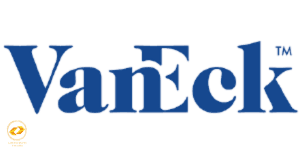Table of Contents Show
The United States is moving towards using Bitcoin as a national reserve asset, with several states taking the lead and federal-level talks picking up steam. Investment management company VanEck recently issued a thought-provoking forecast, suggesting that demand for Bitcoin would increase by 23 billion, or 242,700 BTC, if trends are any indicator.
State-Level Bitcoin Reserve Bills on the Rise
More than 20 American states are currently considering or have already proposed Bitcoin reserve bills. The bills would enable state governments to diversify their reserves by investing a portion of their treasury in digital assets such as Bitcoin. The basis for the proposals is to hedge against inflation, diversify their holdings, and take advantage of the potential long-term appreciation of decentralized financial assets.
These efforts have been led by crypto-friendly states with regulations, including Texas, Wyoming, and Florida. These states view Bitcoin as a promising means to support economic resilience during a time of fiscal instability and increasing federal debt.
VanEck’s $23 Billion Projection
VanEck’s estimate of a possible $23 billion Bitcoin demand is premised on the idea that most states will proceed with their plans to hold Bitcoin reserves. Such demand would be equivalent to 242,700 BTC, which would inject considerable liquidity into the market and likely cause the asset’s price to rise.
The estimate is especially significant in light of Bitcoin’s limited supply of 21 million coins. Even a slight movement in government reserves could put a large dent in the wider market, reinforcing Bitcoin as a store of value similar to gold.
Federal-Level Considerations: A National Digital Asset Reserve?
Ex-President Donald Trump is said to have suggested creating a national digital asset reserve. Even though in discussion stages, the reserve would largely be comprised of Bitcoin, possibly covering up to 35% of the United States national debt by 2049 if utilized to the maximum.
This bold plan would mark a monumental change in U.S. monetary policy. Including Bitcoin in the national reserve would diversify federal holdings away from conventional assets such as gold, foreign currencies, and Treasury bonds. Proponents of the plan say that the decentralized nature of Bitcoin and the limited supply ensure that it is a perfect hedge against inflation and currency devaluation.
Challenges and Risks
While the potential is great, Bitcoin adoption at both the state and federal levels also poses risks. Price volatility continues to be a key issue, as Bitcoin has seen extreme price fluctuations throughout its history. Furthermore, regulatory clarity and cybersecurity measures would have to be prioritized to provide secure custody of digital assets.
There is also the issue of political viability. While there are pro-crypto factions in the U.S. government, others continue to be wary of the asset class due to environmental, economic, and national security considerations.
The Road Ahead
With increasing states introducing Bitcoin reserve bills and ongoing federal debate, America might be at the threshold of a new era of finance. It is unclear whether these projects will materialize in full, but the predicted $23 billion demand calculated by VanEck reflects increasing Bitcoin interest as a strategic financial resource.
If embraced successfully, the inclusion of Bitcoin in national and state reserves could redefine America’s financial structure, making America the leader of digital asset solutions. With an inelastic supply of Bitcoin and increasing institutional integration, the years to come are likely to be years of momentous change as far as states’ management of their fiscal holdings is concerned.
Stay Updated With the Latest Crypto News
For the latest updates, stay connected with us!
👉 Connect with us on LinkedIn: Latest Crypto Update
👉 Follow us on Instagram: Latest Crypto Update
👉 Follow us on Twitter: LCU on Twitter
👉 Subscribe to Our Newsletter for the latest crypto news and market insights.
Disclaimer:
The information provided on this website is for informational purposes only and may include third-party opinions or sponsored content. We do not offer financial advice. Before engaging with any exchange or individual, please conduct your own research and make decisions responsibly. For more details, review our Terms & Conditions.










